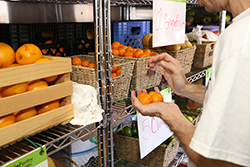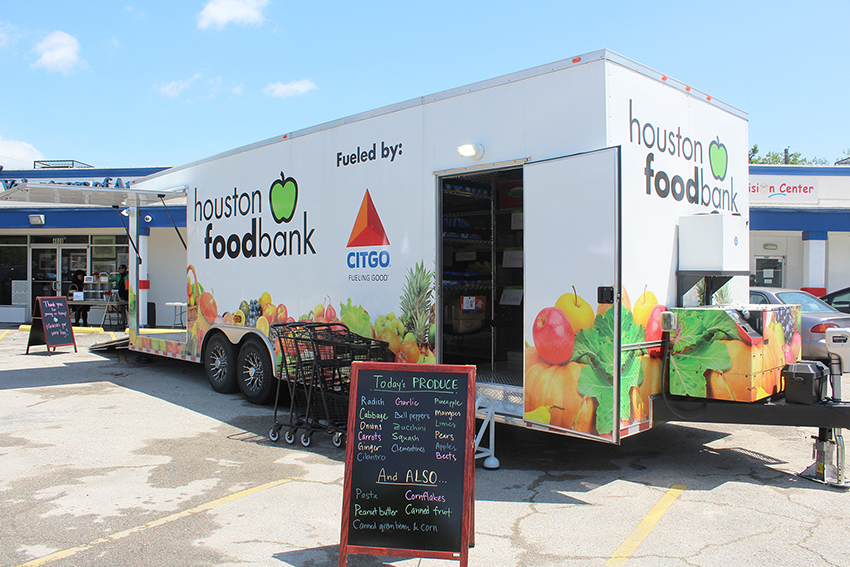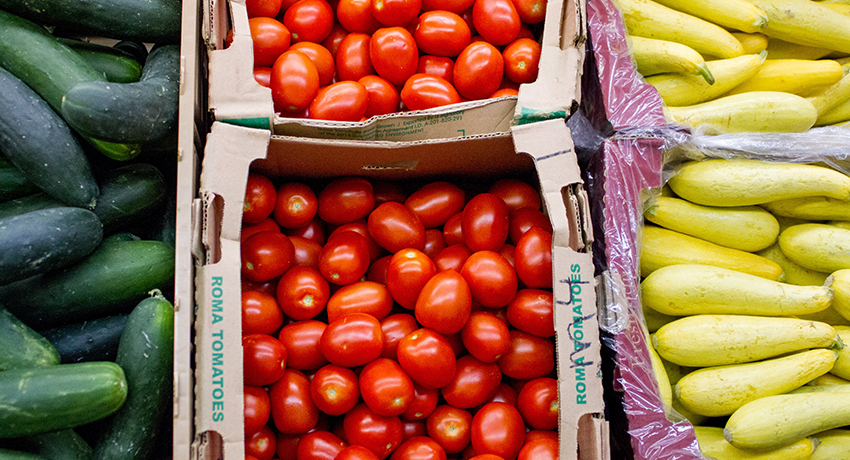Imagine four words scribbled on a prescription form: “fresh fruits and vegetables” – a tactic used to rewrite conventional wisdom about health.
The Food Prescription Program closes the gap between hunger and health by replacing prescriptions with nutritional solutions that address the roots of food insecurity by combining social services with alternatives to drugs.
UT Physicians has partnered with the Houston Food Bank to provide this food prescription initiative, Food Rx, to eligible patients and those in the community. Care team members from two UT Physicians clinics refer patients to the program. UT Physicians Multispecialty – Jensen and UT Physicians Multispecialty – International District are providing this free resource to address food insecurity.
Community health education specialists working with UT Physicians will assist with screening and enrolling clients for Food Rx assistance. The team focuses on wellness programming, including classes on chronic disease management, pregnancy, physical activity, etc. Participants of these classes can enroll in Food Rx.
Healthy Foods for Healthy Results

 The whole point of the Food Rx program is to give customers choice and the ability to shop in person. (Photo courtesy of Houston Food Bank)
The whole point of the Food Rx program is to give customers choice and the ability to shop in person. (Photo courtesy of Houston Food Bank)
UT Physicians is making a difference: Since launching Food Rx in 2019, 400 clients have participated in the program, with 140 currently active clients, and 30 total enrolled last year, with 35 clients enrolled from Healthy Eating Active Living (HEAL) classes for pregnant women and mothers with infants.
“We know that when patients are concerned about feeding their family, they’re less likely to prioritize other needs, like their own health,” says Natalia Williams, project manager for the Healthcare Transformation Initiative at the University of Texas at Houston’s McGovern Medical School. “Through Food Rx, we’re able to provide healthy food options and nutrition education.”
One customer, Gregory Boutte, 50, credits his prescription health foods from FoodRx for keeping him out of the doctor’s office when he wasn’t taking his diabetes medication. In fact, he thinks the foods worked better than his regular medication. His A1C score dropped by three points.
“Numbers don’t lie,” Boutte said, “I wouldn’t have changed anything, so the numbers must have helped. I’m grateful for the eight weeks I spent in the program.”
By attending chronic disease management classes, Boutte received a prescription for healthy foods. She received three meals during the classes. Through this program, Boutte was able to choose 30 pounds of fruits, vegetables, and other healthy foods from a designated food pantry in the city.
Fighting the Barriers
Sometimes, there are barriers that prevent clients from participating in the program. To participate, clients must meet certain criteria, such as having reliable transportation. If they can’t get to the market, they can nominate a substitute shopper.
“It’s a team effort to overcome the various barriers that patients have,” Williams said. “It can be hard for patients to prioritize, but we hear from them that when they get food, it’s amazing.”
Partnership for Good
The Houston Food Bank believes that access to nutritious food and health education helps individuals take better care of their health and reduce the stress of grocery costs, which leads to improved health outcomes and reduced food insecurity.

 Clients who enroll in Food Rx pick up their food prescriptions twice a month at Food for Change markets or mobile pantries across Greater Houston. (Photo courtesy of Houston Food Bank)
Clients who enroll in Food Rx pick up their food prescriptions twice a month at Food for Change markets or mobile pantries across Greater Houston. (Photo courtesy of Houston Food Bank)
“Our Food Rx program is an intervention strategy that goes beyond emergency food assistance by addressing the root causes of food insecurity,” said Jasmine Lanner, MS, RD, LD, senior manager of nutrition and partnerships at the Houston Food Bank. “It is the hope of the Houston Food Bank and UT Physicians that patients who enroll in the Food Rx program will be able to worry less about putting food on the table and focus more on improving their health.”
Clinic staff are proud of the people who have taken advantage of the program and are seeing improvements in their health. Staff seize the opportunity to have open conversations about healthy eating and managing chronic disease. One mother who completed a HEAL class was so grateful for the food partnership that she excitedly told program staff about the food she received: a bag of chicken, vegetables, oranges, nuts, and other fruit.
“It’s encouraging to hear how excited patients are to have access to healthy foods,” Williams says. “We screen for food insecurity in our clinics and we talk about healthy eating in our classes, so it’s rewarding to be able to offer tangible help.”
UT Physicians is working to expand Food Rx to other clinics, and it’s an honor to continue serving the community.


